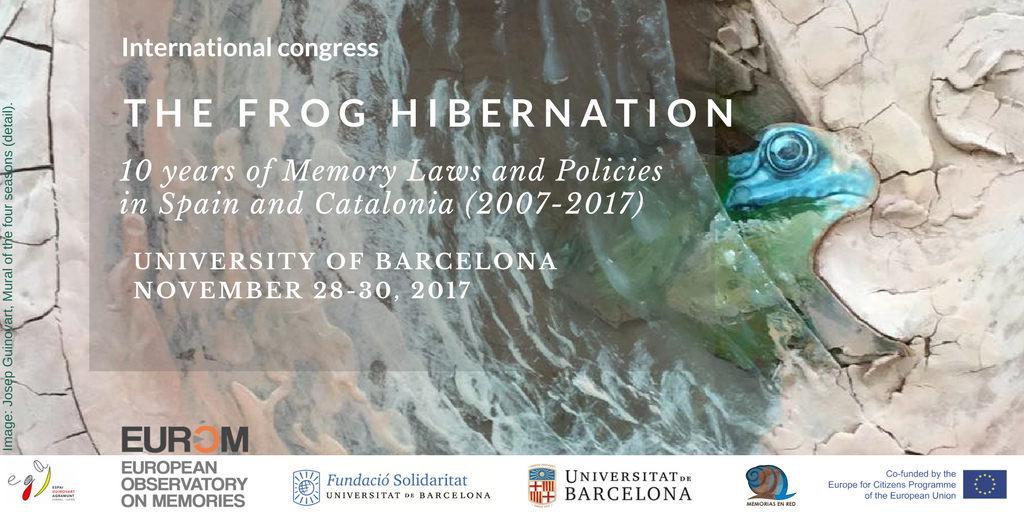Hibernation is more predictive than consequent. Frogs and other amphibians and reptiles use it as a form of protection during the winter to avoid freezing to death. External factors are decisive, but, above all, the attempt to self-protection is essential to prevent death. The risk is very high, but it is also a way to override the vital signs in order to survive, and in some cases, to succeed.
Ten years ago, in October 2007, Spain and Catalonia passed their respective “laws of remembrance”. The Spanish Parliament laid down a “Law for recognizing and extending rights, and establishing measures in favor of those who suffered persecution or violence during the Spanish Civil War and the dictatorship”, while the Parliament of Catalonia gave the green light to the regional Democratic Memory Law.
The legislation over the recent past reopened concerns and hopes, and the relationship between law and memory has been complex and discussed in both cases. The impetus of the approval decreased after a short time, giving way to a period of dormancy or hibernation. A reasonable period of time has passed since then, enough to admit an initial assessment of the role played by those laws in the development of remembrance policies throughout the State, from a historical perspective.
Which are their real effects? What consequences and reactions did they provoke? What other initiatives have been developed since then? In addition to that, the Catalan and Spanish cases are outlined in a European context, where these issues are no alien; it is a common problem for many E.U. member states, as well as for the European institutions themselves when developing public policies of memory and remembrance.
These topics will be developed during the international congress “The frog hibernation: 10 years of laws and policies of memory in Spain and Catalonia (2007-2017)”, organized by the European Observatory of Memories of the University of Barcelona. The program will be developed around the uses, abuses, processes, successes, omissions and gaps of this period, and will have parallel sessions of scientific communications.

